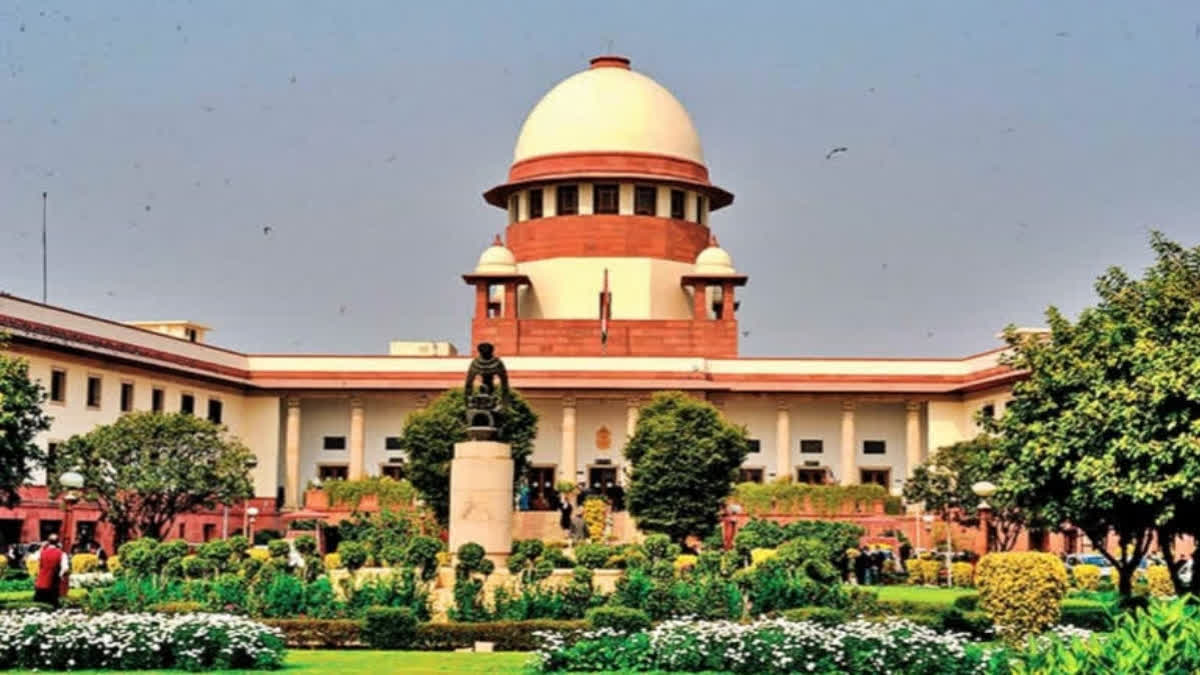New Delhi: The Centre on Wednesday requested the Supreme Court to consider leaving questions raised in the pleas seeking legal sanction for same-sex marriages to Parliament. Solicitor General Tushar Mehta, appearing for the Centre, told a five-judge Constitution bench headed by Chief Justice D Y Chandrachud that the apex court is dealing with a "very complex subject", which has a "profound social impact".
Asserting that revisiting these provisions would be a humongous exercise even for Parliament and that the judiciary was not at all equipped and empowered to do so, the Centre vehemently reiterated its submissions and urged the five-judge Constitution bench headed by Chief Justice D Y Chandrachud to stop the exercise arising out of the pleas of LGBTQIA++ to grant them the right to marry.
Submitting that the real question is as to who would take a call on what constitutes marriage and between whom, Solicitor General Tushar Mehta, appearing for the Centre, told the bench there are several ramifications not only on the society but unintended ramifications on other statutes which would need a debate in the society, various state legislatures and civil society groups.
Contending that marriage is a socio-legal institution and its recognition squarely falls within the domain of legislative policy decisions, Mehta said the very heart of the Special Marriage Act is the recognition of marriage between a conventional man and conventional woman. During the hearing, the court observed it is a well settled principle that judges don't legislate and asked the Centre not to cite in its support the controversial verdict of the US Supreme Court in the Dobbs case which had held there is no constitutional right to abortion.
Also read: Concept of man and woman not absolute: Supreme Court on same-sex marriage
It expressed strong reservation to the Centre making a reference to the verdict in support of the contention that judiciary should not venture into the domain of the legislature, saying the point is well taken but the case be not referred to as India has moved far beyond in recognising the rights of women. Presenting his arguments, Mehta had referred to several judgements delivered by courts in India and abroad and said the judiciary can't indulge in usurpation of power to be exercised by the legislature.
Mehta further said despite marriage being the personal affair of two individuals, legislatures do intervene to decide various modalities such as age and grounds of divorce. Your lordships are dealing with a very, very complex subject having a very, very profound social impact. I would earnestly reiterate my request if your lordships can consider leaving all these questions to Parliament..., the solicitor general told the bench, which also comprised justices S K Kaul, S R Bhat, Hima Kohli and P S Narasimha, during the fifth day of hearing of the petitions.
Mehta said the court is dealing with LGBTQIA+ (lesbian, gay, bisexual, transgender, queer, questioning, intersex, pansexual, two-spirit, asexual, and ally) and there are 72 shades or variations and that is why we write +. Referring to the impact on several provisions of law, he said, Even if the Parliament decides to re-visit these 160 provisions of various laws, then also it is going to be a humongous exercise.
"I understand the difference between gender and sex, sexuality and gender etc. We are not going into it. But all laws, whether it is criminal law, civil law, any other law, law giving protection to women etc., they define man and woman in the conventional sense. When this question is being debated before your lordships for the first time, I am posing a question to myself, and based on that appealing to your lordships, should it not go first to the parliament or the state legislature," Mehta argued.
